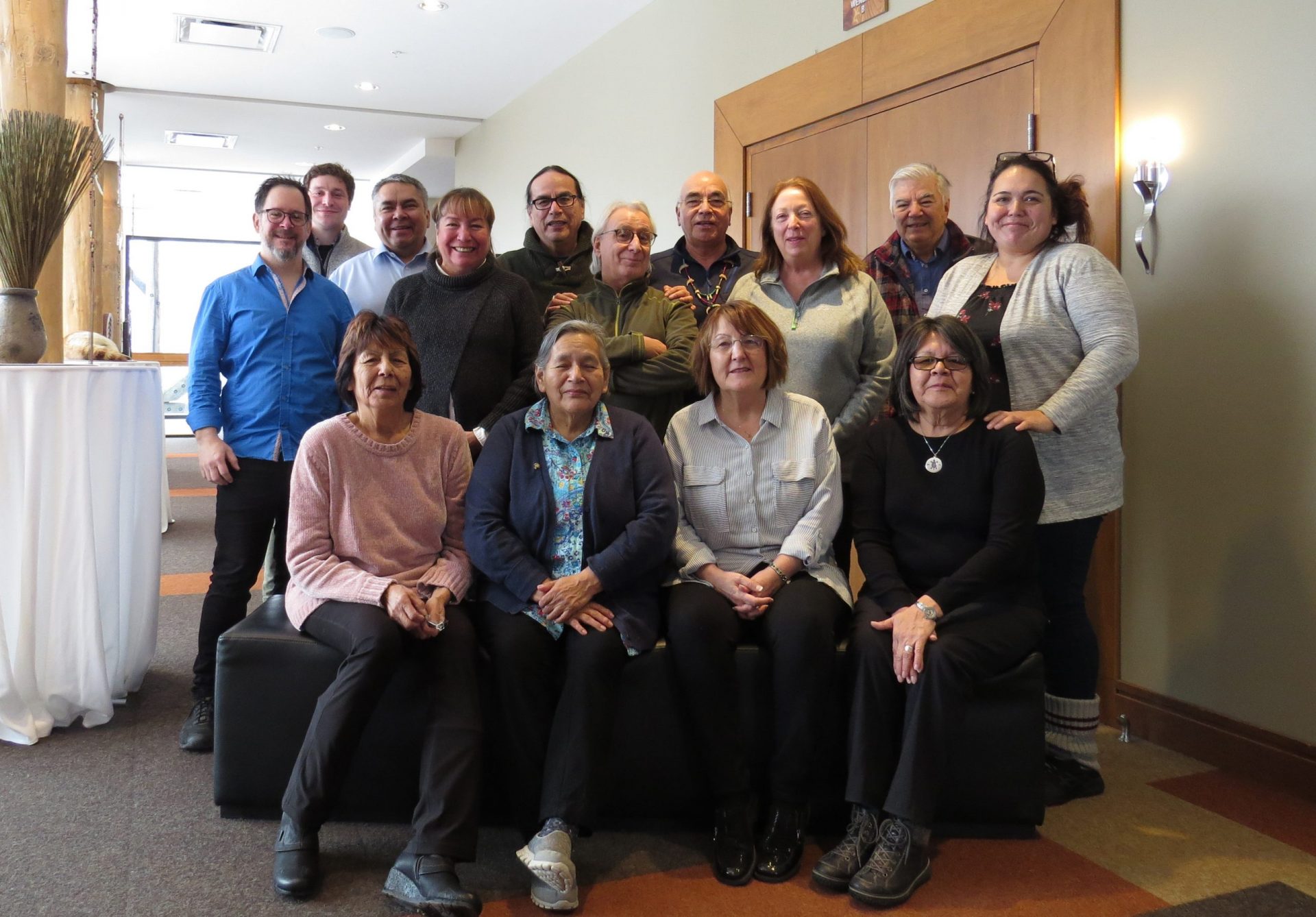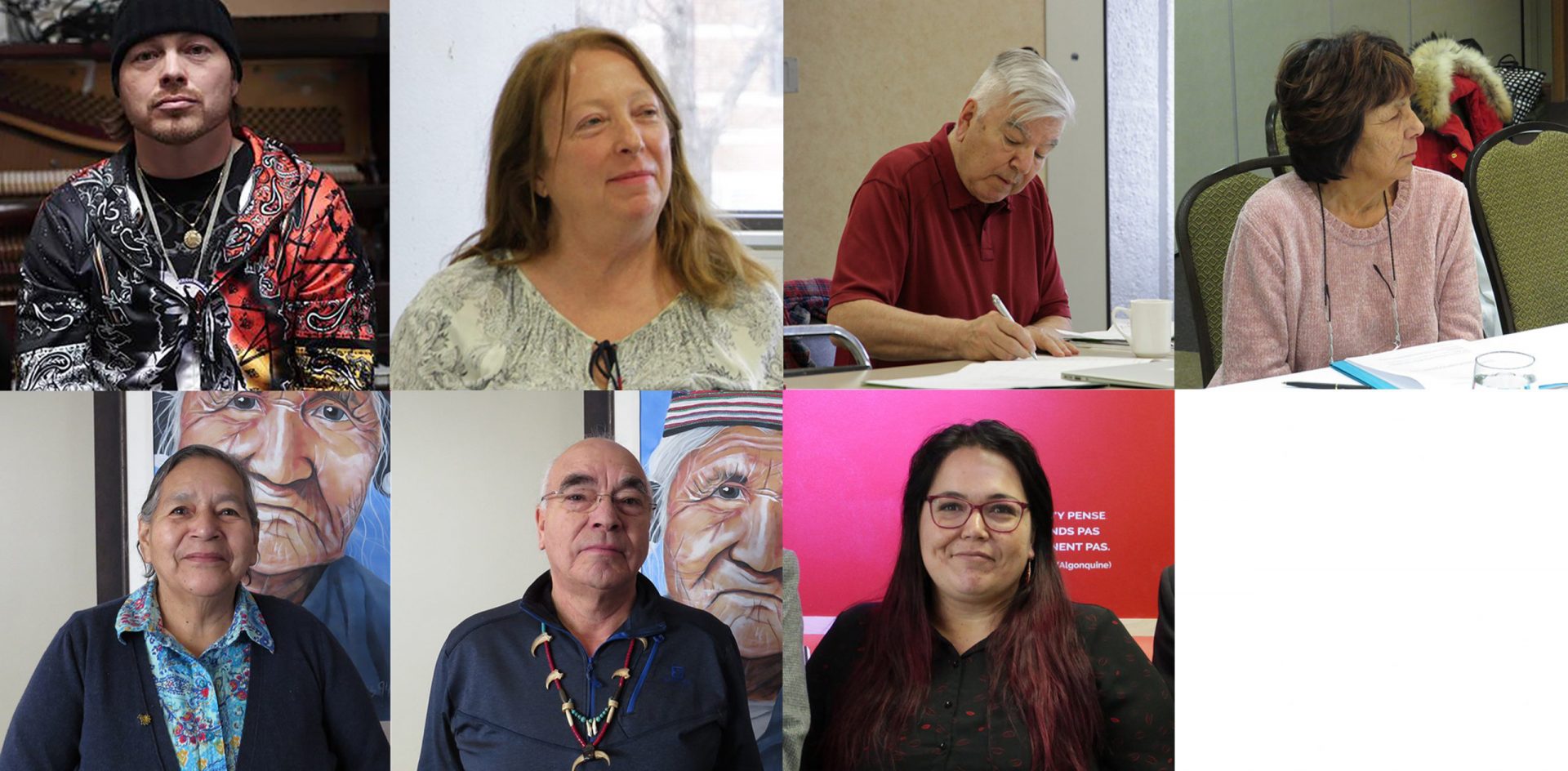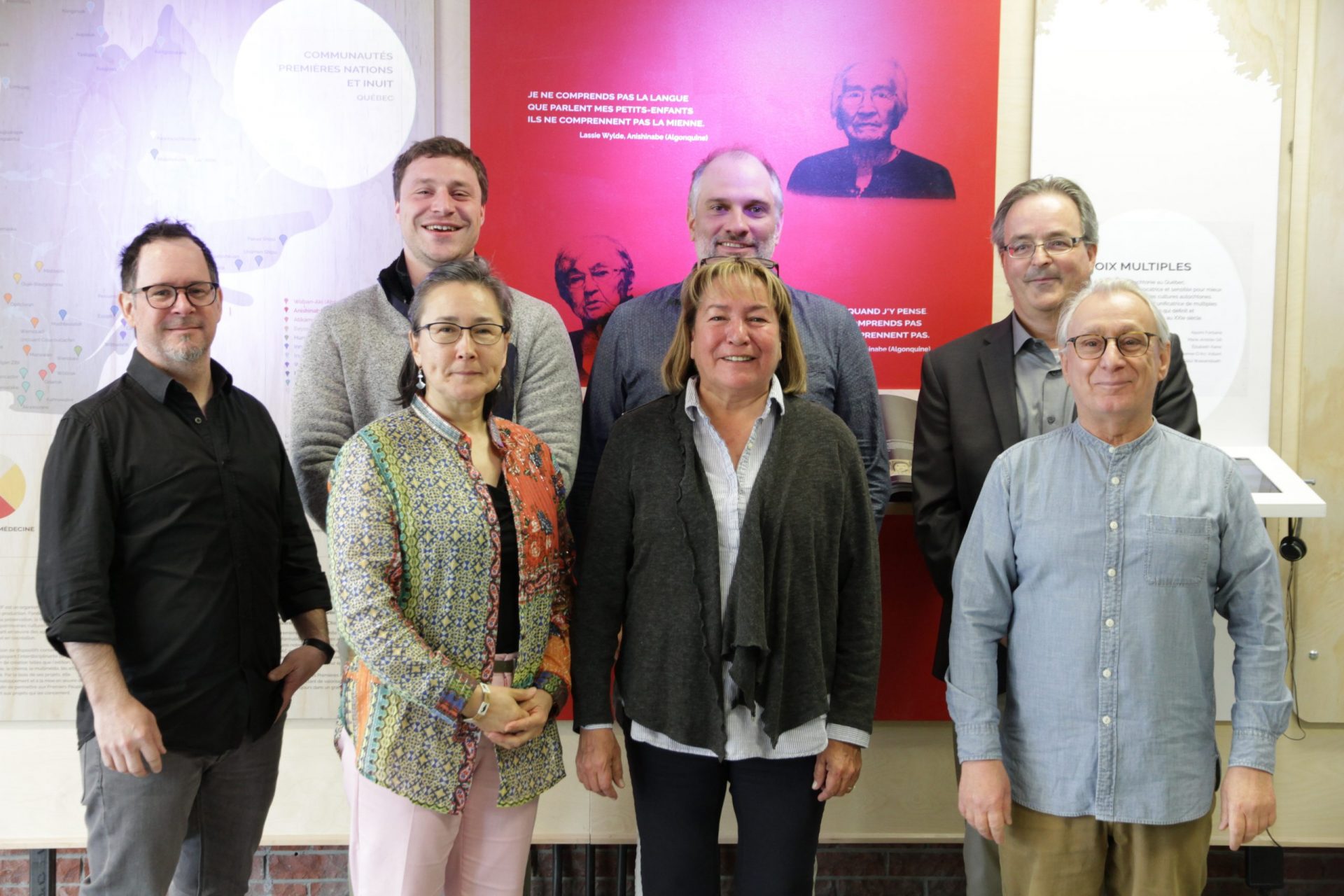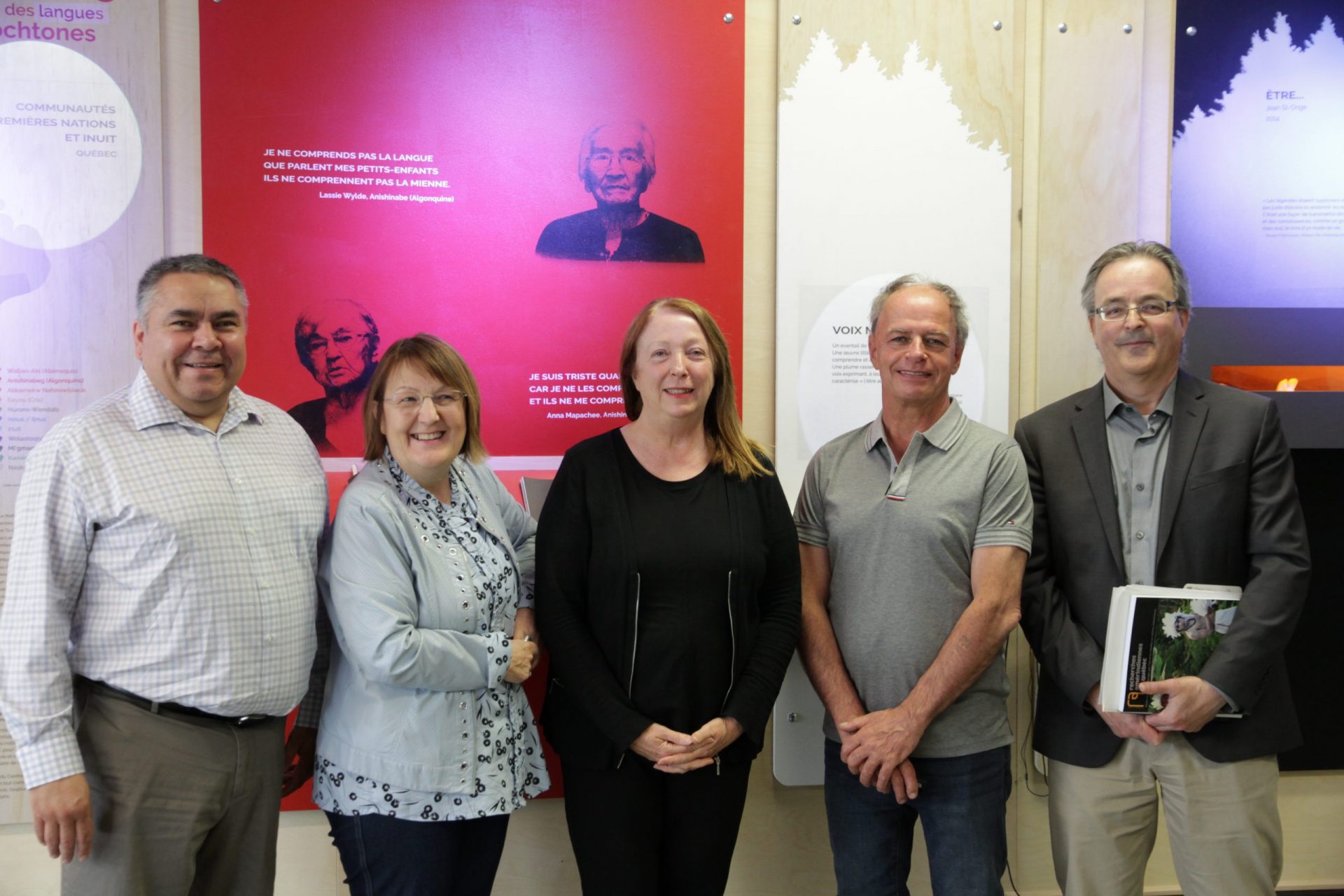Governance
Drawing inspiration from Indigenous philosophies
As it relates to Canada’s Truth and Reconciliation Commission Calls to Action, the collaborative research model put forward by the UNESCO Chair strives for a better mutual understanding between First Peoples and the research community. This willingness to improve relations is embodied in a governance framework inspired by Indigenous philosophies based on consensus, horizontal relationships, and alliances.
The purpose of this approach is to promote the mobilization, commitment and leadership of partners from First Peoples by ensuring a genuine participation in the guidelines and in the decision-making process associated to the Chair's activities. It seeks to create new synergies between Indigenous and non-Indigenous People based on a meaningful collective project: improving the well-being and autonomy of First Peoples through cultural transmission within the context of sustainable and equitable development.
The Chair is also innovating by proposing a model based on two distinct operating methods: governance by committees and governance by projects.

January 2019, Wendake. Work group on Indigenous research.
Jean-François Vachon, David Bernard, Manuel Kurtness, Gloria Vollant, Jean St-Onge, Denis Bellemare, Lucien St-Onge, Élisabeth Kaine, Jacques Kurtness, Marie-Ève Vollant, Marie Raphaël, Évelyne St-Onge, Denise Lavoie, Caroline Vollant.
Committee-based governance
Based on the Chair's mission, objectives and strategies, three committees: the Elders Committee, the Scientific Committee and the Management Committee share responsibility for governance, decision-making and organization with regards to research. Members work closely together to ensure that projects have the broadest possible scope.
Elders Committee
Quentin Condo, Mi'kmaq Nation, Artist and Entrepreneur
Élisabeth Kaine, Huron-Wendat Nation, Associate Professor in Design at UQAC and co-holder of the Chair
Jacques Kurtness, Innu Nation, Doctor of intercultural psychology
Marie Raphaël, Innu Nation, Expert in culture and education
Évelyne St-Onge, Innu Nation, Expert in cultural awareness within schools
Lucien St-Onge, Innu Nation, Spiritual Guide, Co-founder of Uapashkuss
Marie-Ève Vollant, Innu Nation, Director of Atikamekw Onikam Social Services of Manawan

Scientific Committee
Denis Bellemare, Associate Professor of Film Studies at UQAC
David Bernard, Waban-Aki Nation, Research Scientist at the Ndakina Office
Laurent Jérôme, Professor of Anthropology at UQAM
Lisa Koperqualuk, Inuk, Ethnologist and curator-mediator at the Museum of Fine Arts
Jean-François Vachon, Research Director La Boîte Rouge VIF
Gloria Vollant, Innu Nation, Director of the ITUM Research Office and Shaputuan Museum

Photo, mai 2019. À l’arrière: David Bernard, Laurent Jérôme, Yves Chiricota (Doyen, Recherche et Création, UQAC).
À l’avant: Jean-François Vachon, Lisa Koperqualuk, Gloria Vollant, Denis Bellemare.
Mathieu Cook, Professeur en Sciences Humaines et Sociales à l'UQAC et co-titulaire de la Chaire
Roberto Gauthier, Professeur en Sciences de l'Éducation à l'UQAC
Élisabeth Kaine, Nation Huronne-Wendat, Professeure associée en design à l'UQAC et co-titulaire de la Chaire
Manuel Kurtness, Nation Ilnu, Directeur général adjoint La Boîte Rouge VIF
Francis Verreault-Paul, Nation Ilnu, Chef des relations avec les Premières Nations à l'UQAC

Photo, May 2019. Manuel Kurtness, Denise Lavoie (Executive Director of the Chair), Élisabeth Kaine, Roberto Gauthier, Yves Chiricota (Dean, Research and Creation, UQAC),
Absent from the photo: Mathieu Cook and Francis Verreault-Paul
Project-based governance
Project-based governance implies that the researcher is responsible for respecting the guidelines, principles, values and objectives of the Chair while demonstrating the ability to manage the complexity of the situations encountered. This type of governance features flexibility. It takes into consideration the context and nature of each project. If so desired, each team may be accompanied by an Indigenous Advisory Committee to obtain support with their work.
